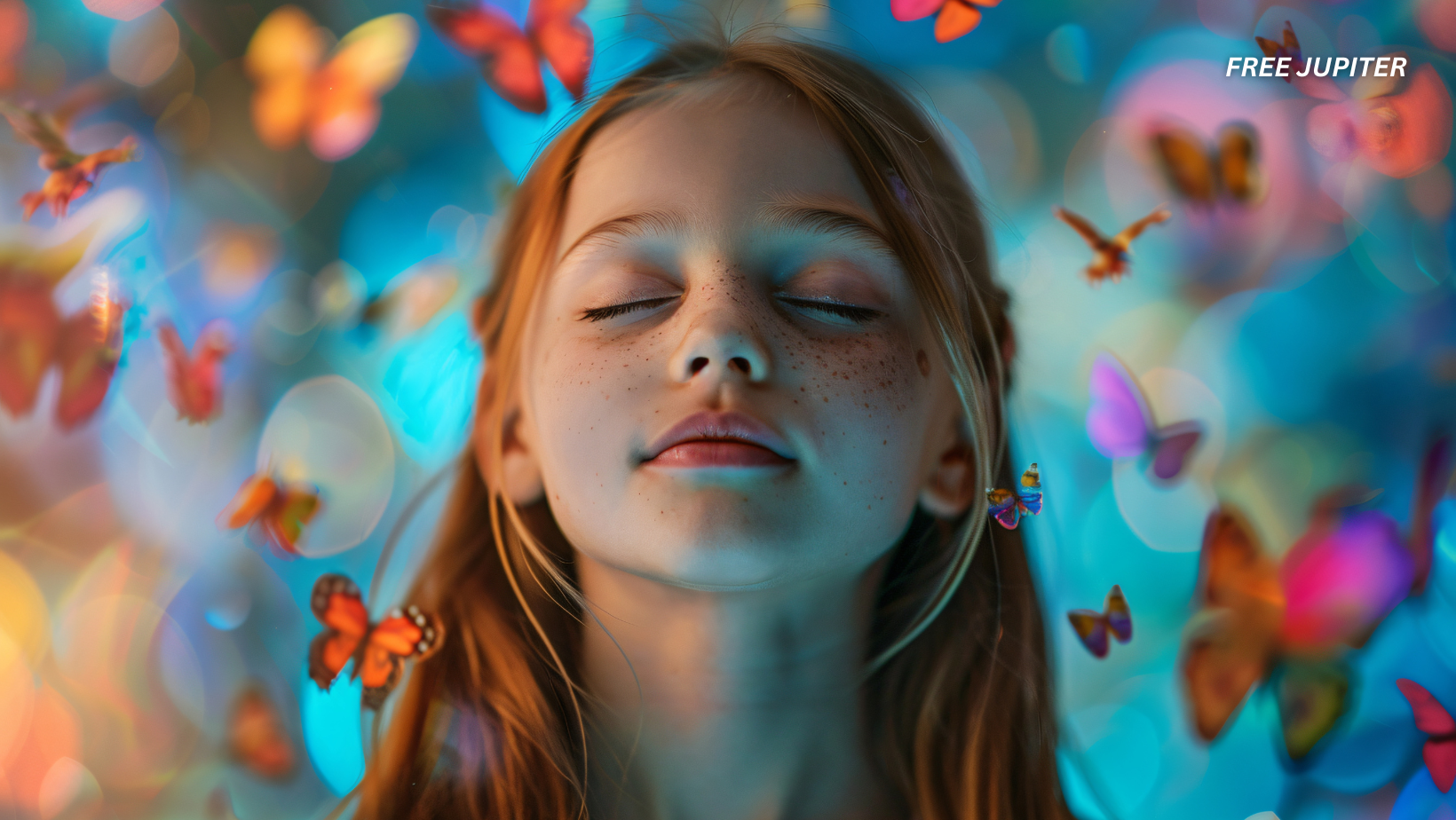Most families have unspoken roles—someone is the responsible one, another is the peacemaker, and then there’s the baby of the family. These roles may seem harmless, but psychologists suggest they can quietly shape how a person behaves even decades later.
You’ve probably heard of “eldest daughter syndrome,” the unofficial label for the heavy burden older sisters often carry: responsibility, perfectionism, and people-pleasing. But what about the youngest child—the one who grew up surrounded by older siblings, often adored, protected, and occasionally underestimated?
Enter the concept of “youngest child syndrome.” It’s not a medical diagnosis or something that appears in psychology manuals, but it’s a pattern many recognize in themselves. The youngest often grows up with freedom and affection, but also with certain invisible limitations—ones that may follow them into adulthood in surprising ways.
What Exactly Is “Youngest Child Syndrome”?
“Youngest child syndrome” is more of a cultural shorthand than a scientific term. Psychologists use it to describe shared emotional and social experiences that tend to occur among people who were the last born in their families.
According to psychologist Dr. Kathy Wu, PhD, youngest children are often treated with more leniency and affection. Parents, already seasoned from raising older children, may relax the rules a bit. Chores might be lighter, expectations lower, and punishments softer.
Read more: According to Parenting Research, This Common Family Habit Can ‘Backfire’ Big Time
At first glance, this sounds like the ideal setup—less pressure and more freedom. But in the long run, this dynamic can subtly shape how a person perceives themselves and their capabilities. The youngest may unconsciously internalize messages like “someone else will handle it” or “I’m not expected to lead.”
However, modern psychology reminds us that birth order doesn’t define personality entirely. Traits such as kindness, ambition, and empathy are influenced by many factors—parenting style, genetics, and social environment all play significant roles. Still, being the youngest often brings a unique emotional fingerprint that shows up in how they communicate, solve problems, and form relationships.
The Quiet Struggles of Being the Youngest
Being the “baby” of the family can sound endearing, but it comes with a few subtle struggles that often go unnoticed.
As children, youngest siblings may have been overlooked in family decisions. Their voices, though small, often carried less weight compared to the older ones. As adults, this can manifest as difficulty asserting independence or feeling uneasy in positions of authority.
Many youngest children also face the challenge of redefining themselves once they step outside the family home. For years, their identity was wrapped up in being “the youngest,” the one everyone took care of. Without that role, some struggle to figure out who they truly are.
These experiences can lead to emotional habits such as:
- Seeking validation before making decisions.
- Avoiding confrontation or leadership.
- Feeling inadequate when compared to older, more experienced peers.
While none of these patterns are permanent, understanding them is key to growth—and self-compassion.
8 Traits Youngest Children Often Develop as Adults
Not every youngest child will relate to all of these, but many will see glimpses of themselves in a few. Some traits are deeply positive, others more challenging, but all are rooted in the same formative experience of being the family’s “final act.”
1. Feeling “Out of the Loop”
Youngest children often grow up slightly detached from the main current of family life. If there’s a large age gap, they may have missed important milestones or family discussions. Their older siblings may have bonded over school, teenage experiences, or adult responsibilities long before the youngest joined the conversation.
As adults, they may still feel like the “outsider” in certain family interactions. For instance, decisions about parents’ care or finances may still be handled by the older siblings. Even when included, the youngest may sense that their opinions aren’t taken as seriously.
This feeling isn’t about immaturity—it’s about timing and perspective. The youngest was born into a family that was already in motion, and sometimes, it takes conscious effort to step into an equal role within that dynamic.
2. A Natural Streak of Creativity
One of the most celebrated traits of youngest children is their creativity. Without the heavy expectations placed on the firstborn, the youngest often has more space to explore and experiment.
Psychologists suggest that this freedom fosters imagination and originality. Because they had to compete for attention in subtle ways, youngest children learned early how to entertain, surprise, or charm others.
They might have been the family storyteller, the jokester, or the one who invented games to keep up with their siblings. These early experiences can blossom into adult strengths—whether through artistic careers, innovative thinking, or problem-solving with flair.
Even in professional settings, youngest children often stand out for their ability to approach things differently, blending playfulness with bold ideas.
3. Emotional Awareness and Sensitivity
Growing up as the youngest often means being surrounded by older, louder personalities. To fit in, they learn to read emotions quickly—to notice tone shifts, facial expressions, or tension before anyone else does.
This heightened emotional awareness becomes an asset in adulthood. Youngest children tend to be empathetic listeners and are often the emotional glue in their friend groups or workplaces. They instinctively sense when someone’s upset or uncomfortable and know how to lighten the mood or offer support.
However, this same trait can have a downside. Constant emotional tuning can make them overly concerned about others’ feelings, sometimes at the expense of their own.
4. The People-Pleasing Pattern
Because of their emotional sensitivity and early family dynamics, youngest children sometimes grow up wanting to keep the peace. They learned that being agreeable earns approval, while rebellion often brings scolding—or worse, exclusion from older siblings’ circles.
As adults, this can turn into people-pleasing behavior. They may find it difficult to say no or express dissatisfaction, fearing it could lead to rejection.
While kindness and cooperation are wonderful traits, youngest children benefit from setting boundaries and learning that it’s okay to disappoint others occasionally. Self-respect doesn’t cancel out empathy—it strengthens it.
5. Effortless Social Charm
Youngest children often develop strong social skills out of necessity. They grew up in a world of older children and adults, learning early how to communicate across different age groups.
They tend to be natural conversationalists—funny, outgoing, and adaptable. These traits make them well-liked and help them navigate social spaces with ease.
In the workplace, this can translate into being excellent team players, negotiators, or customer-facing professionals. Their ability to connect comes from genuine warmth rather than strategy—it’s something they practiced since childhood.
6. The Identity Struggle
Ironically, the same adaptability that makes youngest children socially skilled can make it harder for them to define who they truly are. Because they spent much of their childhood adjusting to others, they sometimes lose sight of their personal values and boundaries.
In adulthood, they might find themselves mirroring the opinions or choices of friends, partners, or colleagues instead of following their own instincts.
The journey for many youngest children involves reclaiming their identity—learning to listen to their own desires, trust their decisions, and take up space without feeling like they need to please anyone.
7. Hesitation in Problem-Solving
In many families, big decisions—like where to go on vacation or how to handle family issues—were handled by parents or older siblings. The youngest often followed along, protected from stress or responsibility.
While this upbringing can create a carefree personality, it can also limit their confidence in handling complex problems later in life. They may second-guess themselves or seek reassurance before acting.
Dr. Wu notes that youngest children often need to practice decision-making in adulthood, especially when it comes to leadership or independence. The good news? Once they develop this confidence, they tend to be intuitive leaders who lead with empathy rather than ego.
Read more: 12 Clear Signs You’re Shedding Your Old Self — and Becoming Who You’re Meant to Be
8. Playfulness and Optimism
Perhaps the most endearing trait of youngest children is their ability to bring joy wherever they go. Having been raised in an environment where humor and affection surrounded them, they often grow into adults who radiate positivity.
Their sense of play doesn’t fade with age—it becomes part of how they handle challenges. Instead of dwelling on what’s wrong, they find creative, often humorous ways to cope.
This light-hearted outlook can make them resilient during tough times. They remind others not to take life too seriously, serving as a source of warmth and laughter in families and friendships alike.
However, psychologists note that this optimism can sometimes serve as a mask. Some youngest children hide insecurities behind jokes or a cheerful demeanor. True growth happens when they allow themselves to be vulnerable—not just funny or carefree, but authentically seen.
How to Outgrow “Youngest Child Syndrome”
Recognizing how your family role shaped your behavior is the first step toward changing it. Awareness transforms old habits into conscious choices.
Dr. Wu recommends self-reflective practices such as:
- Journaling about decision-making moments where you felt unsure or overlooked.
- Therapy, to explore patterns of dependence or self-doubt.
- Setting small personal challenges, like making decisions without consulting others first.
The goal isn’t to erase the “baby of the family” identity—it’s to evolve it. By embracing both the strengths (creativity, charm, empathy) and addressing the challenges (people-pleasing, indecision), youngest children can step into adulthood as confident, grounded individuals.
As Dr. Wu puts it, “Breaking free from youngest child syndrome means questioning the old roles you inherited—and consciously choosing new ones.”
Read more: 14 Subtle Ways People Manipulate You Without Even Knowing They’re Doing It
Final Thoughts
Being the youngest comes with its perks and pitfalls. You might be the family comedian, the artist, the one who keeps everyone laughing—but you might also struggle to be taken seriously or feel truly independent.
Yet, the beauty of being the youngest lies in transformation. The very traits that once felt limiting can become superpowers. Creativity can turn into innovation. Sensitivity can evolve into emotional intelligence. Playfulness can blossom into resilience.
Ultimately, being the youngest isn’t a disadvantage—it’s a unique blueprint for growth. You were shaped in a family where love, laughter, and leniency taught you to connect deeply with others. And now, as an adult, you get to decide how that story continues—on your own terms.
Featured image: Freepik.
Friendly Note: FreeJupiter.com shares general information for curious minds. Please fact-check all claims and double-check health info with a qualified professional. 🌱










